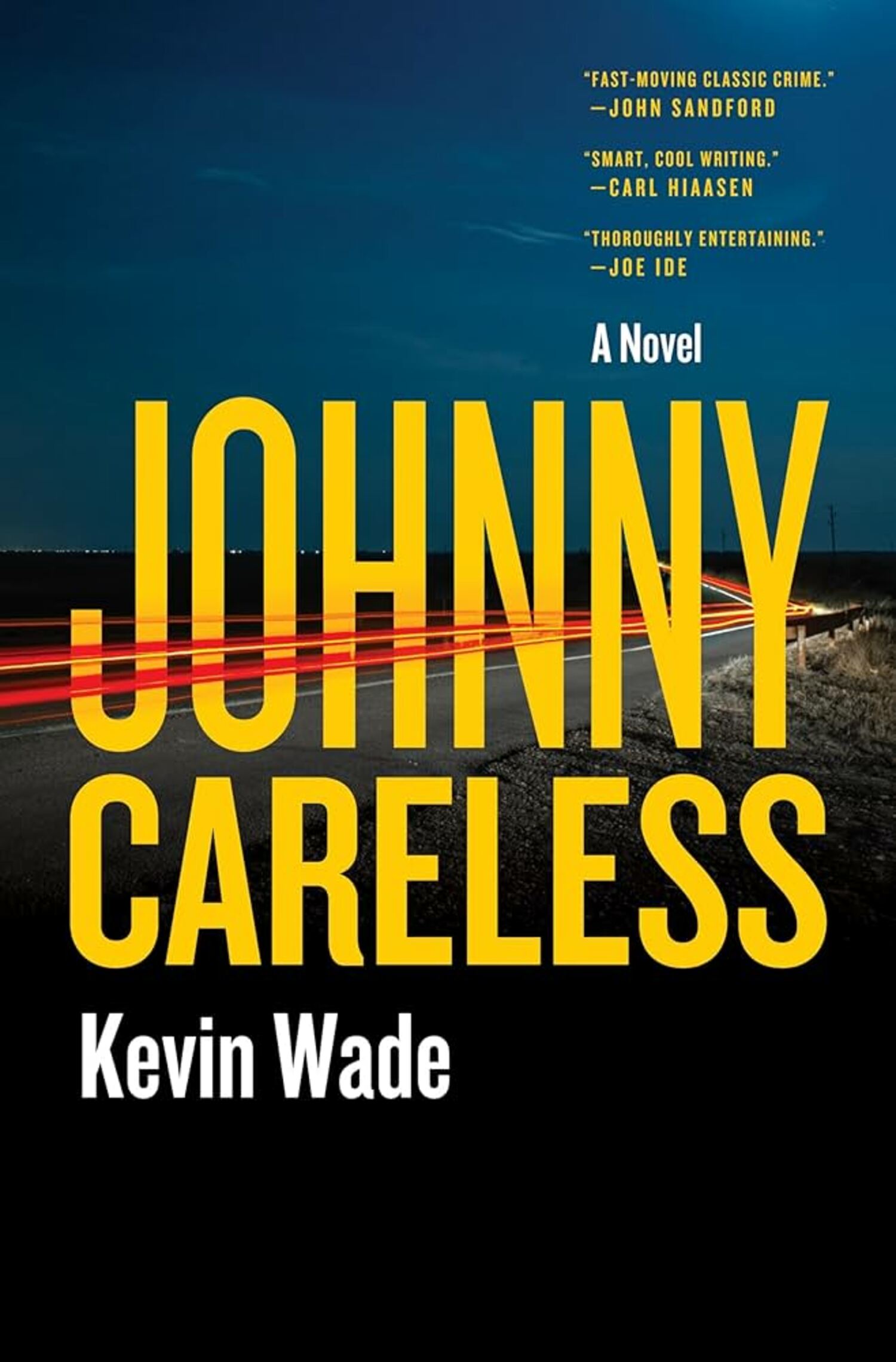
The insider world of Kevin Wade’s crime novel “Johnny Careless” will not surprise fans of the long-running police procedural series “Blue Bloods” — 239 episodes. Wade’s now writing and readying the 14th and final season.
An award-winning writer and producer for stage and TV, Wade has been living on Long Island’s North Shore for the past 23 years which he revisits in “Johnny Careless” through the eyes of a former NYPD cop, now chief of police, in a Gold Coast town. The prose is authentic — blunt, clipped shorthand police slang, often doing without articles or pronouns. Characters engage before readers know who they are or if they’re basically good or bad. The narrative moves cleverly back-and-forth in time, with shifts from a third-person present tense to first-person chapters years ago that incrementally get closer to the present. Action is immediate.
By the second sentence, a body is being slid out of the ocean by EMTs. Only the police chief knows whose it is. And so the inquiry gets underway — a whodunit that builds suspense while slyly disposing of anticipated suspects. Even the title, “Johnny Careless” takes on new meaning: His real name was Johnny Chambliss, the son of arrogant, powerful Pete Chambliss, the wealthiest, most authoritative mover and shaker in Bayville. Toward the end, Johnny emerges, in retrospect, to have been capable of caring, despite evidence that he was a cynical ne’er do well, addicted to alcohol, drugs and women. He marries and then is divorced by his longtime girlfriend Niven who loves and hates him. Besides, “being careless wasn’t a crime ... just a tribal custom.”
Though Johnny is the subject of the novel, it’s police chief Jeep Mullane, once Johnny’s closest friend, now a middle-aged, straight-up, follow-the-rules cop — mostly — who’s the protagonist. “Jeep” — his nickname is a compression of the initials G and P — sniffs out trouble even before it starts by trusting his intuition and silently drawing on words of wisdom from his revered, deceased cop father, whom he promised “to look for the good in people,” to be “patient for their best selves to make an appearance.”
Jeep’s liked in this Gold Coast community, but he knows he’s not socially accepted by the rich and powerful. What makes the narrative stand out is the author’s take on class, detailing the way the rich live and exploit their position, manipulating politicos and the press.
As Wade has said in interviews about crime fiction he admires, “I love it when a book is set in a particular locale and mines the tribal customs and cultural traditions to inform the characters and their stories.”
The culture of “Lawn Guyland” is quite different. “Long Beach on the South Shore of Nassau County is part of the same strand along the Atlantic Ocean as Coopers in Southampton and Two Mile Hollow in East Hampton, and especially on a moonlit Indian summer night you can’t tell the difference unless you turn around and face the land. If you’re at Coopers or Two Mile Hollow, you see dunes and beach plums and magnificent shingled houses. If you’re at Long Beach ... you turn right back around and face the water again.”
Bayville is Gatsby country, except that Pete Chambliss, no Gatsby, is old money and dominates the private schools and restrictive clubs. Jeep, however, though from public schools, is somewhat welcomed by the Chambliss clan for being Johnny’s best friend, though he was told long ago in no uncertain terms by the beautiful, wealthy Niven that he may be “from here,” but he’s “always gonna be signing the guest book,” and will never be a member of an exclusive club. Jeep knows that. He and Johnny bonded in their teens over sports and became trusted buddies, even if, as the years moved on, they saw each other less frequently. Jeep became a cop, Johnny carried on stoned, driving muscle cars, taking off for skiing trips and relying on his father to bail him out of trouble. When, decades after their school days, Jeep looks at the corpse that’s washed up on the beach, he knows immediately from a tattoo that it’s Johnny. Was this an accident or … ?
As Jeep moves to investigate his old buddy’s death, he gets caught up in jurisdictional disputes (cops as well as criminals have their private deals going) and then, more serious, in a crime wave targeting luxury cars. It’s clear that a gang of organized youngsters from Santiago, Chile, has been scouting out pricey marks all over the Gold Coast, using Google Earth to track entrances and exits to even the most out-of-the-way places, to score. Would you believe (of course you will, now) that when you go to a funeral of a wealthy person, you’d better lock your car? Or probably when you go to any event or restaurant that attracts high end clientele.
“Taut and unsentimental” is how Wade says he wants the language of his fiction, and “Johnny Careless” delivers. The book is an example by a pro of how writing a crime novel differs from writing for stage or TV, where dialogue isn’t front and center. Wade delights now in taking on all the roles he previously shared “osmotically” with others on a production team: “director, location scout, camera crew, costume designer, scenic designer, prop master.” He’s said that “A novelist has to make certain there is plenty of risk and muscle in the language to make up for the absence of the beauty, charm, fierceness, and erotic promise that actors bring.”
Still, “Johnny Careless” impresses not so much for the way language may reveal character as for how setting does. Blurbs from his crime-writing heroes suggest that this debut novel has drawn effectively on years of observation and experience.